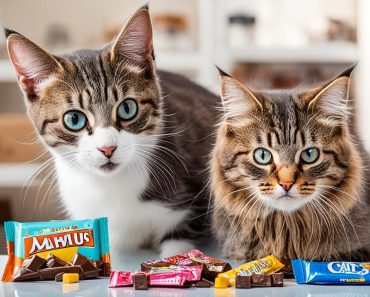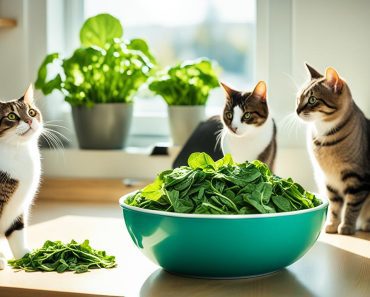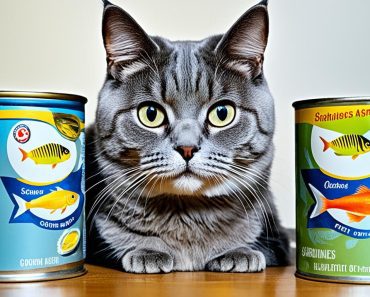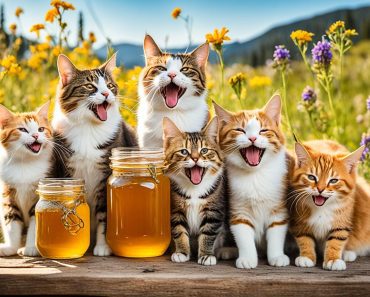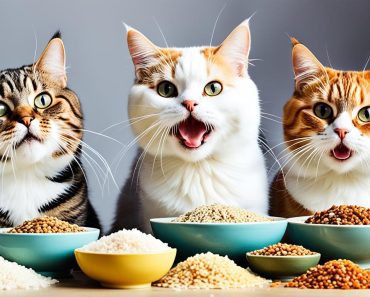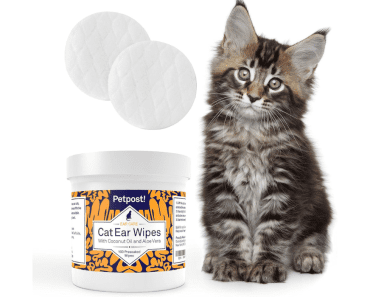As a cat owner, I’ve often wondered about the safety of feeding potatoes to my feline friend. Cats have a reputation for being picky eaters, but occasionally, they may show an interest in trying different foods, including potatoes. However, it’s important to consider the health implications of cats eating potatoes and whether it is safe for them to do so.
Can Cats Eat Potatoes? Yes, they can. But with careful considerations.
- Cats can eat potatoes occasionally but not all types.
- Peeled and roasted potatoes without fats, spices, or salt are the best option.
- Cats are obligate carnivores, and their nutritional needs are best met with balanced cat foods.
- Potatoes should only be offered as an occasional treat after consulting with a vet.
- Raw and boiled potatoes can be toxic to cats and should be avoided.
Can Cats Eat Raw Potatoes?
Raw potatoes are not safe for cats and should not be included in their diet. As an obligate carnivore, a cat’s digestive system is designed to process animal protein efficiently, and raw potatoes can be difficult for them to digest.
One of the main concerns with raw potatoes is the presence of solanine, a toxic substance found in the skin and sprouts of potatoes. If a cat ingests solanine, it can lead to various symptoms of toxicity, such as gastrointestinal upset, vomiting, diarrhea, and even neurological issues.
If you suspect that your cat has ingested raw potatoes or potato peel, it is crucial to contact your veterinarian immediately. They can provide guidance and monitor your cat for signs of solanine intoxication. Remember, early intervention is key to ensuring your cat’s safety and well-being.
Can Cats Eat Boiled Potatoes?
When it comes to feeding potatoes to cats, the question arises as to whether boiled potatoes are safe for our feline friends. Like raw potatoes, boiled potatoes can also contain solanine, which is toxic to cats. Therefore, it is best to avoid feeding boiled potatoes to cats to ensure their safety.
Cats have specific dietary requirements as obligate carnivores, and they can meet all their nutritional needs from balanced cat foods. While potatoes may be a common ingredient in our meals, they do not offer significant nutritional benefits for cats. Instead, cats require high-quality proteins and essential nutrients that are found in specifically formulated cat foods.
If you are considering feeding your cat a taste of potato, it is essential to consult with a veterinarian beforehand. They can provide guidance on the proper way to offer potatoes to your cat, if at all. In most cases, it is best to avoid feeding boiled potatoes to cats and opt for cat-safe treats instead. Your veterinarian will be able to recommend suitable options based on your cat’s specific dietary needs and health condition.
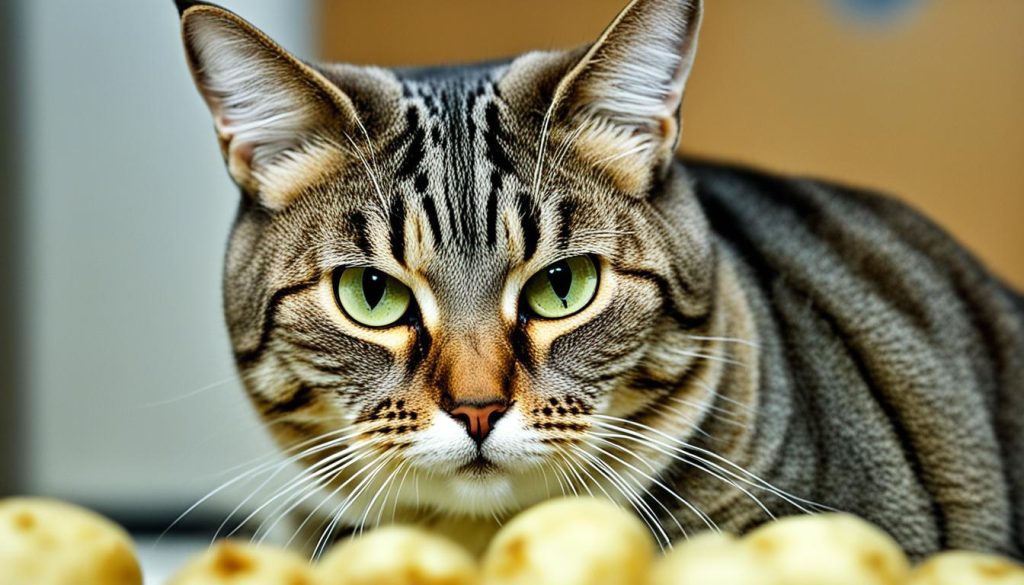
If you suspect that your cat has ingested boiled potatoes or any other toxic food, it is crucial to seek immediate veterinary attention. Keep a close eye on your cat for any signs of gastrointestinal distress, such as vomiting or diarrhea, as well as lethargy or loss of appetite. The sooner these symptoms are addressed, the better the chances of a positive outcome for your beloved feline companion.
While boiled potatoes may seem harmless, they can still pose a risk to the health of our cats. It is always best to prioritize a cat’s overall well-being and consult with a veterinarian before introducing any new foods into their diet.
Can Cats Eat Sweet Potatoes?
Yes, cats can eat sweet potatoes, but it’s essential to offer them in moderation. Sweet potatoes are not toxic to felines, but they should not be a major part of their diet. It’s important to follow safe feeding practices when giving sweet potatoes to your cat.
If you choose to offer sweet potatoes to your cat, they should be cooked and peeled. Raw sweet potatoes can be difficult for cats to digest. Cooking them helps to break down the starches and make them easier for cats to consume and absorb nutrients.
Health Implications of Cats Eating Sweet Potatoes:
- Sweet potatoes are a good source of dietary fiber, which can aid in digestion and promote bowel regularity in cats.
- They also contain essential vitamins and minerals, including vitamin A, vitamin C, and potassium.
- However, it’s important to note that cats are obligate carnivores, and their nutritional needs are primarily met through high-quality protein sources, such as meat.
- Sweet potatoes should only be offered as an occasional treat and should not replace a balanced cat food diet.
When introducing sweet potatoes to your cat’s diet, closely monitor their response. Any unusual symptoms, such as vomiting or diarrhea, should be reported to your veterinarian. Every cat’s digestive system is unique, and some may be more sensitive to certain foods than others.
Remember, the primary source of nutrition for cats should be a balanced cat food that meets their specific dietary requirements. It’s always best to consult with your veterinarian before introducing any new food items to your cat’s diet.
Can Cats Eat Potato Crisps or Chips?
Cats should not eat potato crisps or chips as they are high in salt and fat, which can lead to health problems. It is best to avoid sharing potato chips with cats, even in small amounts.
Feeding cats potato crisps or chips can pose several risks to their health and well-being. These popular snack foods are often seasoned with high levels of salt and cooked in unhealthy oils. When cats consume excessive amounts of salt, it can disrupt their electrolyte balance and lead to dehydration and kidney problems. Additionally, the high fat content in potato crisps and chips can contribute to obesity, which can increase the risk of various health issues such as diabetes and heart disease in felines.
Furthermore, certain chip flavors may contain additional ingredients like onions or garlic, which can be toxic to cats if ingested in large quantities. Cats have a limited ability to metabolize certain compounds found in seasonings, making it important to keep them away from any potentially harmful additives.
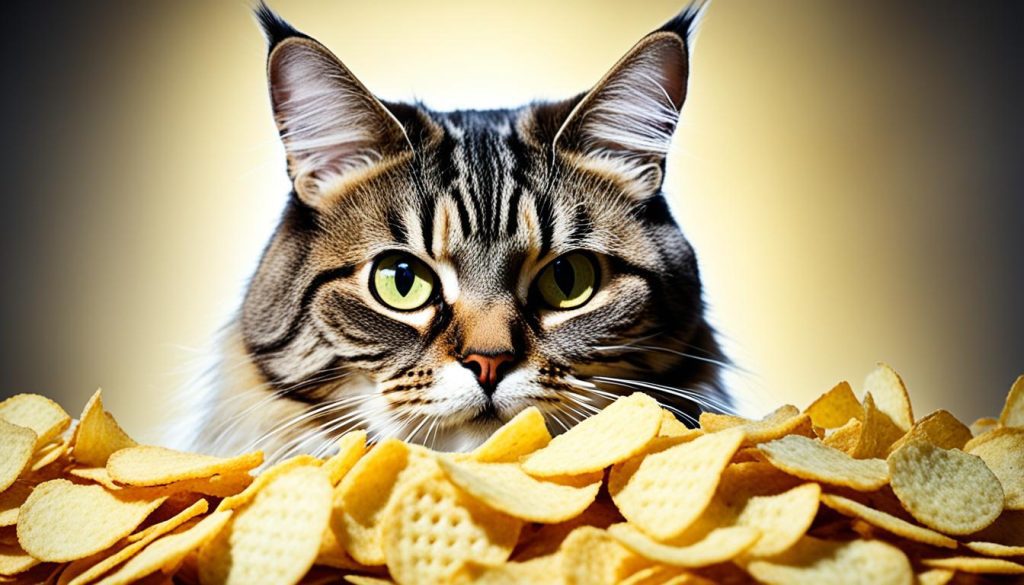
As responsible pet owners, it is crucial to prioritize the health and well-being of our feline companions. While it may be tempting to share your favorite snack with your cat, it is best to avoid offering potato crisps or chips. Instead, focus on providing your cat with a nutritionally balanced diet that meets their specific dietary needs.
- High salt content: Potato crisps and chips are often seasoned with excessive amounts of salt, which can lead to dehydration and kidney problems in cats.
- High fat content: The high fat content in potato crisps and chips can contribute to obesity in cats, increasing their risk of various health issues.
- Toxic additives: Some chip flavors may contain ingredients like onions or garlic, which can be toxic to cats if ingested in large quantities.
By understanding the risks associated with cats consuming potato crisps or chips, you can make informed decisions about what foods to offer your feline companion. Remember, their health and well-being should always be the top priority.
Are Potatoes Good for Cats?
When it comes to feline nutrition, potatoes don’t rank high on the list of beneficial foods for cats. Cats are obligate carnivores, which means their bodies are designed to thrive on a diet primarily made up of animal protein.
While potatoes can provide some carbohydrates and vitamins, they don’t offer the essential nutrients that cats need to stay healthy. It’s important for cats to receive a balanced and complete diet that meets their specific nutritional requirements, and that is typically achieved through specially formulated cat foods.
However, this doesn’t mean that cats can never have potatoes. Potatoes can be offered as an occasional treat, but it’s important to exercise caution and moderation. If you’re considering offering potatoes to your cat, it’s always best to consult with your veterinarian first to ensure it aligns with your cat’s individual dietary needs and health.
Remember, it’s crucial to prioritize your cat’s overall diet and health, and potatoes should not be considered a necessary or essential part of their daily nutrition. Cats should primarily rely on balanced cat foods that provide all the necessary nutrients they require to live a happy and healthy life.
How to Offer Potatoes to Cats
If a cat is given permission by a vet to have a taste of potato, it is important to follow safe feeding practices to ensure their well-being. Here are some guidelines to follow:
- Wash the potatoes thoroughly to remove any dirt or pesticides.
- Peel the potatoes to eliminate any potentially harmful skin or residue.
- Cook the potatoes without adding any additional ingredients such as salt, spices, or fats.
- Offer a small amount of cooked potato as an occasional treat. Remember, potatoes should not be a regular part of a cat’s diet.
- Monitor your cat for any unusual symptoms or reactions after consuming potatoes. If any problems arise, consult with a veterinarian immediately.
To ensure your cat’s health and well-being, it’s always best to consult with a vet before introducing new foods or treats into their diet. They will be able to provide personalized advice based on your cat’s specific needs and dietary requirements.
Conclusion
While it is permissible for cats to consume potatoes in small amounts, it is not necessary or highly recommended for their overall diet. Cats are obligate carnivores and can meet all their nutritional needs from specially formulated cat foods. Potatoes should only be offered as occasional treats, and it is crucial to consult with a veterinarian before introducing them into a cat’s diet.
When considering a cat’s diet, it is important to prioritize their overall health and well-being. Opting for balanced cat foods ensures that cats receive the necessary nutrients they require for optimal health. While potatoes may be safe for cats in moderation, they should not be a staple or vital part of a cat’s diet.
For specific dietary guidelines and nutrition advice for cats, it is always best to consult with a veterinarian. They can provide personalized recommendations based on the cat’s unique needs and help ensure the cat’s diet is balanced and suited for their individual health requirements.

